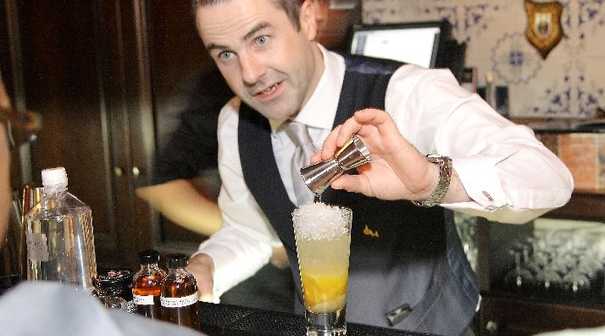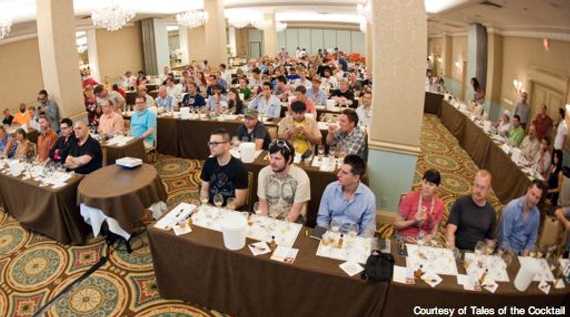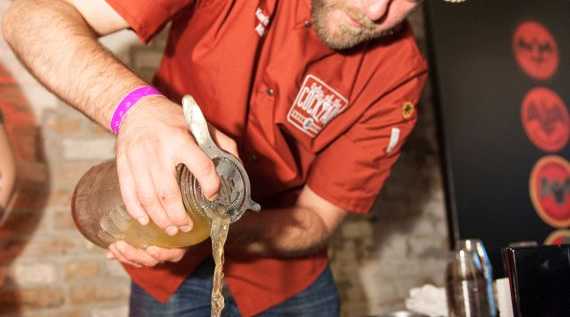5 Questions with Philip Duff of Tales of the Cocktail in New Orleans
Irishman Philip Duff was one of the world's first global brand ambassadors, capping a long career in bartending and managing that culminated in him opening door 74, the multiple award-winning speakeasy cocktail bar in Amsterdam, the Netherlands. Now resident in New York, he continues to create and teach educations seminars and programs for spirits brands, and also serves as Director of Education for Tales of the Cocktail worldwide. We asked him a few questions about his festival.
1. What happens at Tales of the Cocktail?
Tales is described as the world's biggest sleep-away camp for bartenders, but it's more properly framed as the largest gathering of cocktail and spirit professionals and enthusiasts on the face of the planet. Everyone significant comes to Tales or wishes they had, and for a single glorious week, New Orleans, one of America's liveliest and prettiest cities, hosts the best bartenders, drink historians and spirit marketers in the world.

2. What is your role in putting this event together?
I'm the Director of Education, so my work is very often far in advance back in late 2013, when we set parameters for the kind of proposals we want to receive for 2014 seminars and recruited a global network of 43 internationally respected experts to evaluate all the proposals and choose the best ones.
The Cocktail Apprentice Program (CAP) team, together with the Tales of the Cocktail "Angels", handle the logistics and administration of the seminars so well I couldn’t improve on that in any way. This summer, I'll mostly be trying to see as many first-time speakers as possible, because tales' lifeblood is new information and new perspectives.
3. What sessions are you most excited about at this year's Tales of the Cocktail?
I'm really stoked about the Technique Workshops, a high-cost high-contact practical series of workshops where there are very limited places, and where the intention is that you walk out being at least somewhat proficient in the technique being taught.

Simon Ford's suggestion of extremely limited-places, expensive once-in-a-lifetime Rare Tastings has been taken onboard and some lucky people will have the most amazing chartreuse, whiskey and sherry tastings of their life. And on a personal level, as well as the rum and Calvados seminars I'm teaching myself, I'm again curating Tales' version of TED Talks, SED Talks (Spirits, Education, Development), which has expanded into 3 seminar slots after last year's success.
4. How does mixology in the U.S. differ from mixology in other places in the world?
It caters to a knowledgeable, demanding public who are incredibly well supplied by one of the best logistical systems in the world, and the US remains a country where, in cities at least, people like to drink, aren't afraid to drink cocktails, and are constantly on-trend with the latest micro-trend in drinking.

As t he U.S. mixology community grows, trough events like Tales and excellent organizations like the USBG, it really builds momentum, and personally I think we in the U.S. are in a second Golden Age of cocktails that will rival the previous one, if not surpass it.
5. You are credited with exposing molecular mixology to the wider bartending community. What is molecular mixology?
It's really just the art of combining knowledge of psychology, physiology and gastronomy, to allow guests to experience their food and drinks in a new way - to see them from a different perspective. The cliché of a bartender wearing safety goggles and a lab coat really is just a cliché; molecular mixology can be something as deceptively simple, yet delicious, as an aromatic garnish, or a faint rinse of liqueur in a classic cocktail's glass.

